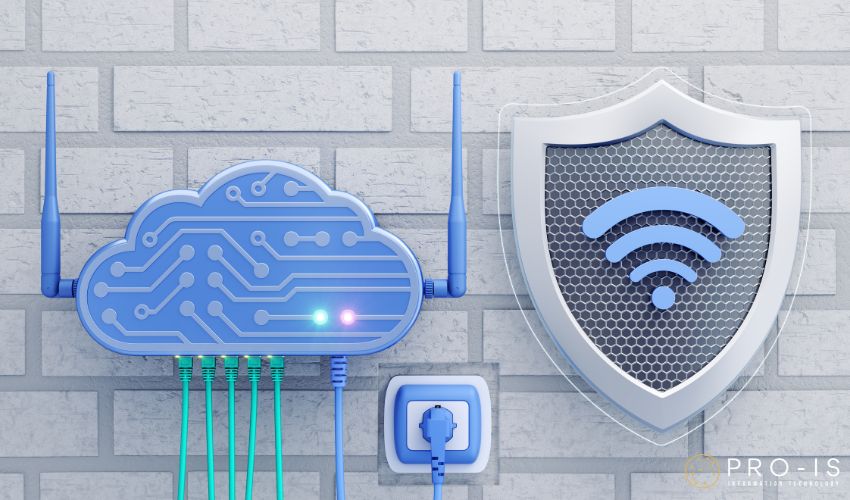Welcome to Boulder, the vibrant city nestled in the foothills of the Rocky Mountains, where breathtaking natural beauty meets technological innovation. In this ever-evolving digital age, bolstering cyber security has become an utmost priority for Boulder residents and businesses alike. With the rise of cyber threats and the increasing value of personal and sensitive data, safeguarding your digital world has never been more crucial.
In this article, we will explore the best practices and cutting-edge solutions to protect yourself and your business from potential cyber-attacks. From robust firewalls and secure networks to implementing encryption protocols and educating employees, we will discuss how to create a comprehensive defense strategy. We aim to empower you with the knowledge and tools needed to fortify your digital presence and ward off potential threats.
Join us as we delve into the world of cyber security, exploring the latest trends, expert insights, and practical tips to ensure a safer online experience. Let us navigate the intricate cybersecurity landscape together and make Boulder a stronghold against cybercrime.
*For incorporating brand voice, please provide the specific brand voice in order to tailor the introduction accordingly.
The Importance of Cyber Security in Today’s Digital World
In an increasingly interconnected world, the importance of cyber security cannot be overstated. With the rapid expansion of the internet and the growth of digital services, individuals and businesses are more vulnerable than ever to cyber threats. Cyber security involves protecting computer systems, networks, and data from theft, damage, or unauthorized access. In Boulder, as in many cities, the reliance on technology means that every resident and business must take cyber security seriously to safeguard their digital lives. A single breach can lead to devastating consequences, including financial loss, reputational damage, and loss of sensitive information.
Moreover, as technology continues to advance, so do the methods employed by cybercriminals. From phishing scams to ransomware attacks, the tactics used to exploit vulnerabilities are becoming increasingly sophisticated. This makes it imperative for everyone to stay informed about potential risks and to implement robust security measures. The consequences of neglecting cyber security can be catastrophic, affecting not only the individual or business but also the broader community. In Boulder, where innovation thrives, a culture of cyber awareness is essential to ensure that the digital landscape remains secure for all.
Additionally, the implications of weak cyber security extend beyond immediate threats. They can disrupt operations, compromise confidential information, and even lead to legal repercussions. Organizations that fail to protect their data adequately may face fines, lawsuits, and loss of customer trust. For residents, the threat of identity theft, financial fraud, and privacy breaches looms large. Thus, understanding the importance of cyber security is the first step in creating a resilient digital environment that fosters growth and innovation while protecting the interests of individuals and businesses alike.

Common Cyber Security Threats and Vulnerabilities
Cyber security threats come in various forms, each with its unique strategies and targets. One of the most prevalent threats is phishing, where attackers send deceptive emails that appear to be from trusted sources. These emails often contain malicious links or attachments designed to steal sensitive information, such as passwords and credit card numbers. Phishing attacks exploit human psychology, making it crucial for individuals to recognize and question suspicious communications. As more people in Boulder engage in online transactions, understanding the nuances of phishing becomes essential in safeguarding personal and financial information.
Another significant threat is malware, which encompasses various malicious software types, including viruses, worms, and trojans. Malware can infiltrate systems through infected downloads or compromised websites, leading to data loss and system damage. Once inside a network, malware can spread rapidly, making it vital for both individuals and businesses to employ protective measures. Regularly scanning devices for malware and maintaining updated antivirus software can help mitigate these risks. In a city like Boulder, where tech-savvy individuals are prevalent, awareness of malware types and their potential impacts is crucial for a proactive defense.
Ransomware is yet another daunting cybersecurity challenge. This type of malware encrypts files and demands a ransom for their recovery, effectively holding users hostage. Organizations may suffer severe operational disruptions while attempting to recover lost data, often at a high financial cost. Ransomware attacks have been on the rise, targeting sectors ranging from healthcare to education. Businesses in Boulder must prioritize data backups and develop incident response plans to minimize the impact of such attacks. Understanding these common threats and their vulnerabilities is the cornerstone of building a comprehensive cybersecurity strategy.
Cyber Security Statistics and Trends
To grasp the urgency of enhancing cyber security, it’s essential to consider recent statistics and trends that illustrate the magnitude of the issue. According to the Cybersecurity & Infrastructure Security Agency (CISA), cybercrime has surged dramatically, with reports indicating that businesses and individuals face billions of dollars in losses annually. In 2022 alone, the FBI’s Internet Crime Complaint Center (IC3) received over 800,000 complaints, amounting to losses exceeding $6.9 billion. Such staggering figures highlight the pervasive nature of cyber threats and underline the need for bolstering security measures in Boulder and beyond.
Moreover, the increasing sophistication of cyber attacks presents a concerning trend. Attackers are evolving their techniques, utilizing artificial intelligence and machine learning to enhance their strategies. This evolution means that traditional security measures may no longer suffice, necessitating the implementation of advanced defense mechanisms. As more organizations adopt cloud services and remote work policies, the attack surface expands, making it easier for cybercriminals to exploit vulnerabilities. Staying informed about these trends and adapting security approaches accordingly is vital for both individuals and businesses in Boulder.
Additionally, the rise of the Internet of Things (IoT) introduces new vulnerabilities that must be addressed. With the proliferation of connected devices, from smart home systems to industrial equipment, the potential entry points for cyber attacks multiply. According to a report by Gartner, the number of connected devices is expected to reach 25 billion by 2030. This trend makes it imperative for users to secure their IoT devices properly and implement network segmentation to limit potential breaches. Understanding these statistics and trends is crucial for developing effective cybersecurity strategies that can withstand the evolving landscape of threats.

Steps to Strengthen Your Cyber Security
Strengthening cyber security involves a multifaceted approach that incorporates various strategies and best practices. The first step is to conduct a thorough risk assessment to identify potential vulnerabilities within your systems and processes. This assessment should encompass all digital assets, including hardware, software, and data. By understanding where your weaknesses lie, you can prioritize your efforts and focus on the areas that require the most attention. In Boulder, organizations should consider collaborating with cybersecurity experts to evaluate their defenses and develop tailored strategies that address specific risks.
Once vulnerabilities are identified, implementing security measures is crucial. This includes establishing robust firewalls to create a barrier between your internal network and external threats. Firewalls monitor incoming and outgoing traffic, blocking unauthorized access while permitting legitimate communications. Additionally, employing antivirus software can help detect and eliminate malicious programs before they can cause harm. Regularly updating these tools and ensuring that they are configured correctly can significantly enhance your overall cyber security posture.
Another critical step is to enforce strong password policies and multi-factor authentication (MFA). Weak passwords are often the easiest target for cybercriminals, making it essential to educate users on creating complex passwords that include a mix of letters, numbers, and symbols. Implementing MFA adds an extra layer of protection by requiring users to provide additional verification, such as a code sent to their mobile device. In Boulder, where many users access sensitive information online, employing these practices can significantly reduce the risk of unauthorized access.
Creating a Strong Password and Using Multi-Factor Authentication
One of the simplest yet most effective ways to bolster cyber security is by creating strong passwords and utilizing multi-factor authentication. A strong password is the first line of defense against unauthorized access to your accounts. It should be at least 12 characters long and include a combination of uppercase and lowercase letters, numbers, and special symbols. Avoid using easily guessable information, such as birthdays or common words. Instead, consider using a passphrase—a series of random words strung together—that is both memorable and difficult for others to decipher.
In addition to strong passwords, multi-factor authentication (MFA) provides an essential second layer of security. MFA requires users to verify their identity through multiple methods before gaining access to their accounts. These methods can include something you know (like a password), something you have (like a smartphone), or something you are (like a fingerprint). By requiring additional verification, MFA significantly reduces the chances of unauthorized access, even if a password is compromised. Implementing MFA across all accounts, especially those containing sensitive information, is a recommended practice for Boulder residents and businesses alike.
Furthermore, it is essential to educate yourself and others about the importance of password hygiene. Regularly updating passwords and avoiding the reuse of passwords across multiple accounts can help mitigate risks. Password managers can also be a valuable tool in this regard, as they securely store and generate complex passwords for various accounts, making it easier to maintain strong security practices. By prioritizing strong password creation and implementing MFA, individuals and organizations in Boulder can significantly enhance their defenses against cyber threats.

Best Practices for Securing Your Devices and Networks
Securing your devices and networks is a foundational aspect of any comprehensive cyber security strategy. One of the first steps is to ensure that all devices, including computers, smartphones, and tablets, are equipped with the latest security updates and patches. Software developers regularly release updates to address vulnerabilities and enhance security features. By enabling automatic updates, users can ensure that their devices remain protected against emerging threats without the need for constant manual intervention.
In addition to keeping software updated, it is essential to configure security settings correctly on all devices. This includes enabling firewalls, disabling unnecessary services, and using encryption where applicable. For example, ensuring that Wi-Fi networks are secured with strong passwords and encryption protocols (such as WPA3) can prevent unauthorized access to your home or business network. Furthermore, segmenting networks can limit potential exposure; for example, keeping guest networks separate from primary business networks can reduce the risk of intrusion.
Another best practice is to regularly back up important data. In the event of a cyber attack, such as ransomware, having secure backups can be a lifesaver. Data should be backed up to a separate location, whether it’s a cloud service or an external hard drive, to ensure that it can be restored quickly without paying a ransom. Boulder’s tech community has access to various tools and services that facilitate secure data backups, making it easier for both individuals and businesses to safeguard their critical information against loss or theft.
Educating Employees on Cyber Security Awareness
For organizations, employee education plays a pivotal role in enhancing cyber security. Human error is often the weakest link in security protocols, making it essential to cultivate a culture of cyber awareness among staff. This can begin with regular training sessions that cover various topics, including identifying phishing attempts, understanding social engineering tactics, and adhering to best practices for password management. By empowering employees with knowledge, organizations can significantly reduce the likelihood of successful cyber attacks.
In addition to formal training, ongoing communication about cyber security issues is vital. Organizations should establish clear channels for reporting suspicious activities and provide updates on emerging threats. Implementing simulated phishing exercises can also be an effective way to test employees’ awareness and reinforce learning. These exercises can help staff recognize potential threats in a controlled environment, preparing them for real-world scenarios. In Boulder, where many companies are at the forefront of technology, fostering a proactive approach to cyber security awareness is essential for maintaining a secure digital environment.
Furthermore, organizations should consider developing clear cyber security policies outlining acceptable use of technology, remote work guidelines, and incident response procedures. These policies provide a framework for employees to understand their responsibilities in protecting sensitive information and responding to potential threats. By involving employees in the development of these policies, organizations can ensure that they are practical and relevant, leading to higher compliance and engagement. Creating a cyber security-aware culture not only protects the organization but also empowers employees to take ownership of their role in safeguarding digital assets.

Implementing Firewalls and Antivirus Software
Implementing firewalls and antivirus software is a critical component of any robust cyber security strategy. Firewalls act as a barrier between your internal network and external threats, monitoring incoming and outgoing traffic. They can be hardware-based, software-based, or a combination of both. A properly configured firewall can prevent unauthorized access and protect sensitive data from being compromised. For businesses in Boulder, investing in a strong firewall solution can help safeguard proprietary information and maintain customer trust.
Antivirus software serves as another layer of defense, designed to detect, prevent, and remove malware from devices. Regularly updated antivirus programs can identify known threats and provide real-time protection against emerging ones. It’s essential to choose antivirus software that aligns with your specific needs, whether for personal use or enterprise-level protection. Additionally, educating users about the importance of running regular scans and keeping the software updated can enhance its effectiveness. The combination of firewalls and antivirus software creates a formidable defense against a wide range of cyber threats.
Moreover, organizations should implement a layered security approach, often referred to as defense in depth. This strategy involves using multiple security measures to protect against different types of attacks. Firewalls and antivirus software are just the beginning; additional layers can include intrusion detection systems (IDS), data encryption, and secure access controls. By employing a comprehensive security framework, businesses in Boulder can create a resilient defense that adapts to the evolving threat landscape, ensuring the continued safety of their digital assets.
Regularly Updating and Patching Software
Regularly updating and patching software is a fundamental practice in maintaining robust cyber security. Software vendors frequently release updates to address vulnerabilities, improve functionality, and enhance security features. Failure to apply these updates can leave systems open to exploitation by cybercriminals who actively seek out unpatched software as easy targets. In Boulder, where many businesses rely on a range of software applications, implementing a consistent update schedule is essential for reducing risk and ensuring the integrity of digital operations.
In addition to operating systems, all applications and software must also be kept up to date. This includes web browsers, productivity tools, and specialized software used by organizations. Many cyber attacks exploit vulnerabilities in outdated applications, making it critical for users to stay vigilant. Automated update features can simplify the process, ensuring that systems remain current without requiring constant manual intervention. Establishing a culture that prioritizes timely updates can significantly enhance the overall security posture of both individuals and organizations.
Furthermore, organizations should develop a patch management policy that outlines the procedures for identifying, testing, and deploying updates. This policy should include guidelines for prioritizing critical updates and determining the appropriate timing for installations to minimize disruptions. Regularly reviewing and auditing software applications can help organizations stay ahead of potential vulnerabilities. By making software updates and patch management a central focus of cyber security efforts, Boulder residents and businesses can better protect themselves against the ever-evolving landscape of cyber threats.
Conclusion: Taking Proactive Measures to Protect Your Digital Assets
In conclusion, bolstering cyber security in Boulder requires a proactive and comprehensive approach. As we navigate an increasingly digital world, understanding the importance of cyber security, recognizing common threats, and implementing best practices are essential steps in safeguarding our digital lives. By prioritizing strong password creation, utilizing multi-factor authentication, and securing devices and networks, individuals and organizations can significantly reduce their risk of falling victim to cyber attacks.
Moreover, educating employees about cyber security awareness and fostering a culture of vigilance can enhance defenses against potential threats. Implementing robust firewalls, antivirus software, and maintaining regular software updates further fortify security measures. As technology continues to evolve, staying informed about cyber security trends and adapting strategies accordingly will be crucial in protecting sensitive information and maintaining trust in the digital landscape.
Ultimately, the responsibility for cyber security lies with each of us. By taking proactive measures to protect our digital assets, we can contribute to a safer online environment for ourselves and the Boulder community. Let us work together to navigate the complexities of cyber security, ensuring that our vibrant city remains a stronghold against cybercrime as we embrace the future of technology with confidence.
If you’re in Fort Collins, Loveland, Greeley, Denver, Boulder, or the surrounding area and don’t have an IT Service Provider or are looking for managed IT support, cyber security, IT services, or IT coverage, contact Pro-IS for a free consultation (970) 613-0980.
